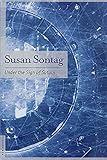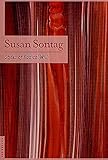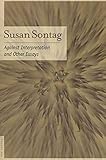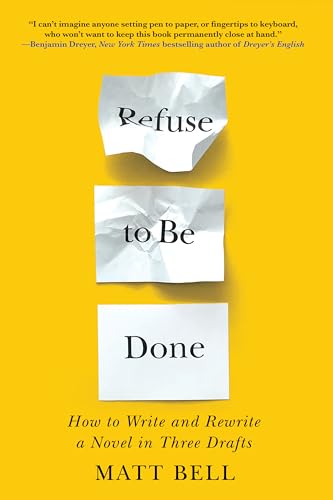 Phillip Lopate is a master of many literary forms. Best known as an essayist and a champion of the personal essay, Lopate has also written three books of fiction and two volumes of poetry, with his next, At the End of the Day, forthcoming in January. This spring Princeton University Press published his latest book, Notes on Sontag, as the first in a series of Writers on Writers. In Notes on Sontag, Lopate weds his memories of Susan Sontag as a teacher (though never his), cinephile, cult figure, and intellectual idol, with an analysis of her essays and fiction, and in doing so takes on her aversion to the personal essay. Lopate states accurately in his introduction, “Those who are looking for a hatchet-job here will be as disappointed as those seeking hagiography.” The end result is a thoughtful, intellectual, and at times comic account of Sontag’s writing and life. As Monica McFawn’s Quarterly Conversation review claims, “Lopate’s strongest case for the personal in literature is his own riveting sketch of Sontag.”
Phillip Lopate is a master of many literary forms. Best known as an essayist and a champion of the personal essay, Lopate has also written three books of fiction and two volumes of poetry, with his next, At the End of the Day, forthcoming in January. This spring Princeton University Press published his latest book, Notes on Sontag, as the first in a series of Writers on Writers. In Notes on Sontag, Lopate weds his memories of Susan Sontag as a teacher (though never his), cinephile, cult figure, and intellectual idol, with an analysis of her essays and fiction, and in doing so takes on her aversion to the personal essay. Lopate states accurately in his introduction, “Those who are looking for a hatchet-job here will be as disappointed as those seeking hagiography.” The end result is a thoughtful, intellectual, and at times comic account of Sontag’s writing and life. As Monica McFawn’s Quarterly Conversation review claims, “Lopate’s strongest case for the personal in literature is his own riveting sketch of Sontag.”
I was lucky enough to take a nonfiction workshop with Lopate this summer as part of the Summer Literary Seminars in Vilnius, Lithuania. The intellectual rigor and witty sense of humor that informs his prose made the class both stimulating and enjoyable. We met one morning in Vilnius, not far from Cathedral Square, to speak about Susan Sontag, the personal essay, and his book.
The Millions: In your introduction to Notes on Sontag, you call your ambivalence for Susan Sontag “a promising basis for a work of literary reflection.” Could you talk more about your ambivalence and why you thought that was a good starting point for this book?”


 Phillip Lopate: I think the essay gravitates toward doubt and self-doubt. And then you untie the knots along the way, only to create more knots. So in many ways this book on Sontag is a defense of the essay. It’s a book-length essay, and what I value most in Sontag is her work as an essayist, especially her first three collections of essays: Against Interpretation, Styles of Radical Will, and Under the Sign of Saturn.
Phillip Lopate: I think the essay gravitates toward doubt and self-doubt. And then you untie the knots along the way, only to create more knots. So in many ways this book on Sontag is a defense of the essay. It’s a book-length essay, and what I value most in Sontag is her work as an essayist, especially her first three collections of essays: Against Interpretation, Styles of Radical Will, and Under the Sign of Saturn.
I have a complicated relationship with Sontag, both as a reader and as an acquaintance, and I thought that this project would give me the chance to work out what I really thought about her and her work. Ambivalence is a good starting point because you don’t run out of things to say. You’re always at war with yourself, in a sense, and that guarantees a certain tension.
TM: You mention your personal relationship with Susan Sontag. One of the things I really enjoyed about the book was the way that you interspersed analysis with personal reflections. I was wondering how much that played a role in your conception of the book, and if you think you would’ve written the book without having known her. It obviously would’ve been a different book.
PL: Well, I’m a personal essayist first and foremost, and one of the curious things about Sontag was that she went on record expressing a disdain for the personal and thought there was something tacky about writing about yourself, though the times that she did it she did it brilliantly. So, in some ways, I’m a different kind of essayist from Sontag and this book is mainly an analysis of her work. I would say it’s 80 percent analysis, 20 percent personal vignettes and memories. You can’t be 100 percent objective. I wanted to show that a human being was writing the book, and one comes with certain predispositions, prejudices, and so on.
I also thought it would be funny because a lot of the memories are funny. One of the amusing sides for me in the book is that Sontag was a brilliant writer who was not particularly known for having a sense of humor. A lot of my material is comic, more or less, and so I thought that even though Sontag isn’t funny I could find a way to write in an amusing way about her and about myself. Because, in a way, there’s nothing funnier than someone who takes herself very seriously and has a solemn reverence for greatness. So I was able to play with that.
I think that one of the main things that gets me going as a writer is the opportunity to do mischief. And in this particular respect I was analyzing one of the sacred cows of contemporary literature, an icon really. I knew that I was on thin ice a lot and that itself piqued my interest because I could get in a lot of trouble. One of the ways I could get in trouble immediately was by confessing that in some ways I had always wanted Sontag’s respect for me as a writer, and I had never quite gotten it. I would be handing those hostile to the book a weapon against myself, saying, Oh, well, he’s just got an ax to grind, or has a vendetta, but in fact I really wanted to give her my respect every time I could for the work that I love by her. So I don’t think it’s at all a hatchet job. It’s really an attempt to be much more measured. But I gave critics the opportunity to say, He doesn’t understand that he’s just working off his pique. I did understand I was playing with that. The personal is part of what makes the book dangerous—dangerous for me, anyway.
TM: In the book, you mention that Sontag ended up writing quite a bit about herself in spite of her desire to avoid the personal. I’m wondering in what ways you think she revealed herself through her essays and what is the source of her disdain for writing about herself.
PL: Well, it’s funny, when she was quite young she said in a diary entry something to the effect that all writing is an exposure and that you basically want to say something to express yourself, but then she joined a kind of high-minded backlash against the memoir, saying that self-expression was not important and what was important was imagination. She herself moved away from the essay and thought more and more of herself as a fiction writer. So in a way, she devalued her own thinking and put a greater value on making up plots, making up characters, in other words, getting away from the self. That’s one thing you can do. I’ve done that myself—I’ve written fiction where I’ve made up characters, but a lot of what I do is also detaching myself from myself and making myself into a character so that I know I’m not exactly the person I call Phillip Lopate in my writing.
Now, her work is very expressive, for better or worse, of her character. And you can track that development, how she was enthusiastic first about some things and how that changed. It’s very revealing. One of the things that I say in the book is that she didn’t think against herself. She liked to take a strong position and back it up. And then ten years later she would take the opposite position. But in a way, one way of defining the difference between us is that she was an enthusiast and I’m a skeptic. As soon as I begin to march in one direction for a cause, I begin to see the arguments against it and wonder. You could say that I’m just more doubtful from the start.
So it is a kind of conversation between two writers. Even though one of the writers is no longer with us, she has written all these books and I am talking to her. She is my captive audience.
TM: It’s an interesting choice to write about Susan Sontag, given that you’re a personal essayist and that she avoided the medium. How does one write a personal essay without becoming too self-absorbed, or having it become therapeutic? What’s the line?
PL: I think the line is you attend to the form of the work. That is, it’s not a question of what you need therapeutically but what the essay needs. You keep shaving off one part, adding another part, and building a form the way a potter works with clay. I don’t think that writing is intrinsically therapeutic, though I do think that it helps us to come to terms with our demons and it helps us to attain some consolation or equanimity. There is a kind of psychological benefit from writing, at least I’ve experienced it as such.
But I think that if you can make a work of literature—it doesn’t matter whether you’re starting from your own experience or inventing something—you are imaginatively shaping it in some way. There’s the imagination of the real as well as the imagination of the made-up. For me, starting from more experience and shaping it into a pleasing meditation or a pleasing autobiographical piece or memory piece—that’s the justification. Really, giving pleasure is the justification. And the reader can tell right away whether you’re fooling yourself or whether you’ve gained enough detached perspective on yourself. The reader really is the final judge and you just have to internalize the reader and say: Oh no, that’s way to self-absorbed, the reader doesn’t care about that, why are you going on about that? That’s how you acquire some sense of perspective.
TM: Returning to what you were saying about the imagination and Sontag’s writing, in spite of her triumphs with the essay, she preferred to think of herself as a novelist. In the book you mentioned that you, as well as many others, don’t think that her fiction measures up to the level of her essays. Do you think her disdain was a reflection of a greater literary sentiment?
PL: Certainly I think that fiction has more status than nonfiction, just as poetry does. In the beginning of MFA programs, God created fiction and poetry and saw that it was good. Some upstarts came from nonfiction and said, “Hey we want to get in on this boat, too.” I think that if you look at the prizes that are given out every year, there are many more given out in fiction and poetry than are given out in essay writing or other kinds of nonfiction. I don’t think that Sontag was alone at all in this. She was part of a whole generation of writers who actually can be said to have been better at nonfiction than fiction but preferred to think of themselves as fiction writers. I include in that James Baldwin, Mary McCarthy, Gore Vidal, possibly even Norman Mailer, Joan Didion.
Sontag felt the big game was fiction. And that’s where you win the Noble Prize. You don’t win it for writing essays. That’s understandable and that would’ve been great had she been a great fiction writer. Some people can do both, but she lacked a deep sympathy for other people—which is okay if you’re a critic because you don’t have to be that empathetic if you’re a critic, you just have to know what you think about something. And she lacked, for the most part, a sense of humor. It’s hard to be a great novelist without those two things. Somehow she also disdained realism and naturalism for a long time, so that meant she didn’t put that much emphasis into building characters and situations but was much more interested in experimental fiction; when she practiced it, it seemed a little dry. I’m not saying anything that devastating because she was so good an essayist, it’s not a crime not to be a terrific fiction writer also. It’s just that because I love the essay, I regret that she came to put her eggs in another basket.
TM: You are a champion of the personal essay, we’ve talked a lot about this in class. I was thinking about Sontag’s dismissal of nonfiction in relation to our nonfiction workshop, where many people are turning in pieces of fiction. What do you think about the status of nonfiction in general?
PL: I think nonfiction is going to be around forever, and in many ways may sell more books than fiction. That is, in the marketplace, nonfiction probably does better on the whole than fiction. But it’s still hard to get collections of essays published. You can get them published individually in magazines, but you have to create an aura of specialness to get a book of essays published.
I do think that recently nonfiction has been invaded by the allure of fiction and poetry, and there’s a great deal of hybridization that’s fascinating in some ways. It’s a period of experimentation and mutation. It just so happens that I cherish the assets and values of good nonfiction, so I am championing them and saying before we mutate too much in the direction of fiction and poetry, we should just take a step back and realize there are some things quite wonderful that nonfiction can do, including reflection and analysis. You don’t have to make everything into a scene with dialogue. You can actually have the narrative voice reflect as hard and as stimulatingly as possible and give us the full benefit of the thought.
TM: Speaking of reflection, you write that when reflecting on Sontag, she is always provoking you to think harder. At one point you speak of her heroes of the intellect, including Antonin Artaud, Roland Barthes, and Walter Benjamin, and how they shaped her intellectual approach. I was wondering if you would include Sontag as one of your heroes of the intellect, and what aesthetic standards you hold yourself to.
PL: I certainly would include Sontag as someone who had a great influence on me as an essayist. She taught me how to write, let’s say, the twenty-five-page essay where you go in and you circle something from all sides, the way she did in “Notes on Camp.” Clearly the title of my book, Notes on Sontag, plays off of “Notes on Camp,” and the idea of taking notes and arriving at some greater understanding is something that appeals to me a lot. And also, she wrote in a rather epigrammatic, aphoristic, condensed way and I do find that attractive just as I find it attractive in the people who she was inspired by, such as Roland Barthes and Walter Benjamin. In a way, Sontag and I were both drinking from the same fount. She certainly was one of my intellectual heroes and the people who were her intellectual heroes were some of my intellectual heroes as well. I guess I also consider myself more proudly American than she did, and so I don’t only take inspiration from abroad but I take it from American writers as well, including a lot of American essayists, like Edmund Wilson and Lionel Trilling and Mary McCarthy.
TM: In Notes on Sontag, you follow a section called Don’t Get Personal, about the ways that Sontag avoided the personal essay, with a section of your own reflections, Later Memories of Sontag. I thought that added to the levity and the humor that you spoke about earlier. In that section you also mentioned a desire to become closer to Sontag, and this reminded me of your essay about Donald Barthelme,“The Dead Father,” where you speak of a desire to be closer to him, too. Do you think the personal distance they imposed on you and on others enabled them to write as well as they did? I was also thinking of the section in Notes on Sontag where you cite, “Sontag commented often how difficult it was for a woman writer to appropriate the oceans of alone-time that every writer needs.”
PL: Well, they were both, for want of a better word, provincials. They both came from other parts of the country and moved to New York, Sontag from the west—Arizona and California—and Barthelme from Texas. In a way, they were both self-invented and they came to New York. They remade themselves in New York. The whole avant-garde is always from out-of-towners. I’m a native New Yorker, and so in some ways I’m more traditional, you know, because native New Yorkers have seen avant-gardes come and go. We say, “Yeah, yeah, I’m not going to get too excited about this.”
I think that in both cases, my piece about Barthelme and my book about Sontag, I was working on the double portrait. And the double portrait means that it’s going to be about the other person and it’s going to be about me. And that creates an extra interest and tension. In both cases, I was exposing myself to the charge that I was basically chagrined that these literary lions did not take me to their bosom. It’s funny because there have been a number of terrific writers who have given me the benediction and said that they really liked my writing. But it’s less interesting to write about that than it is to write about relationships that only grew so tall. I call them bonsai tree relationships. I wanted to investigate why some acquaintanceships don’t turn into friendships, for instance. What is it that prevents them from growing more? And of course that says something about the literary life and about people protecting their status and choosing quite carefully who will be a peer, who will be an acolyte, and so on. That’s part of what makes the literary life so brutal and so fascinating. In both cases, with Barthelme and Sontag, I was younger than they were but not so young that they could embrace me as one of their mentees so to speak, and therefore more threatening. I was breathing down their necks.
But that’s a curious thing—the whole notion of how people choose to withhold themselves or to give themselves is very interesting and I have to say that I’m the same way. I’m fairly self-protective. I’ll be cordial and helpful with my students but I won’t necessarily let many of them become my friends. Writers have to be very protective. They can’t just give pieces of their heart to everyone.
TM: Is that because you have to maintain space in order to write?
PL: Yes. And in Barthelme’s case he was an alcoholic, which meant after a certain hour of the day you weren’t getting the full sober Barthelme, you were getting somebody who was, you know… in a funny way alcoholics lose some of their individuality. But he was certainly brilliant during the working hours.
TM: I’m wondering if there’s something that I didn’t touch on that you’d like to talk about.
PL: I’d just like to say that for me the book was a literary and stylistic challenge. What I was really trying to do was to write well. To do a kind of peculiar thing, which is a book-length essay that functions on a lot of different levels so that it has this kind of novelistic component, as though it’s about a relationship. You might say that Sontag is an older sister. It has this familial quality but it also has a lot of literary criticism, but I didn’t want to be an academic literary critic who was applying ready-made theory. I liked the idea of reading her work and then saying, “What do I really think about this passage?” Not, “What should I think about it?” but, “What do I actually think about it?” and, “Does this ring true, does this ring false?” without the benefit of a ready-made theory. So you might say it’s amateur literary criticism, but honest, trying to be as honest as I could.










